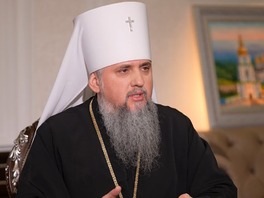Due to the full-scale military aggression of the Russian Federation against Ukraine and the loss of our country's defenders on the frontlines, Ukrainian clinics are receiving numerous requests from widows who wish to use the cryopreserved biological material of their deceased husbands to give birth to a child (i.e., posthumous reproduction). This issue is not adequately regulated by current legislation, although a number of draft laws fully or partially dealing with posthumous reproduction have repeatedly been submitted to the Verkhovna Rada of Ukraine. The Verkhovna Rada of Ukraine passed one of them on 22 November 2023. This is the Law of Ukraine "On Amendments to Certain Laws of Ukraine to Ensure the Rights of War Participants to Biological Post-Traumatic Fatherhood/Motherhood" (hereinafter referred to as "the Law"), which is currently awaiting the signature of the President of Ukraine and has not yet entered into force. The Law provides for the right of military servants and other servicemen participating in military operations (hereinafter referred to as "military servants") to have their reproductive cells collected, cryopreserved, and stored at the state's expense in case of the loss of reproductive function during the time of performing their duties. The relevant right under the Law will only apply during the period of martial law introduced by the Decree of the President of Ukraine "On the Introduction of Martial Law in Ukraine" No. 64/2022 dated 24 February 2022.
The Law provides that in the case of death or recognition of death in accordance with the established procedure of a military servant whose reproductive cells are stored at the state's expense, such storage shall be terminated with further utilization of biological material. However, this provision is inconsistent with the challenges of wartime, as the appropriate disposal will make it impossible for the reproductive cells of deceased military servants to be used by their wives or partners. Additionally, the will of a military servant to use his biomaterial after his death for conception, gestation, and birth of a child is currently formalized by drawing up a notarized consent or signing an agreement with a healthcare institution during the military servant's life. The relevant circumstance, i.e., when a military servant expressed his will to carry out posthumous reproduction during his lifetime, is not covered by the Law, although the requirements of martial law require a different solution.
The law does not apply to cases where military servants wish to cryopreserve embryos rather than sperm or oocytes. The text of the explanatory note to the draft Law refers only to the cryopreservation of "germ cells." That is, if the Law is literally interpreted, military servants will be able to cryopreserve sperm and oocytes according to its norms free of charge, while they will have to pay for the storage of cryopreserved embryos at their own expense. The Law does not provide for the mandatory disposal of cryopreserved embryos in the case of death or recognition of death in accordance with the established procedure.
A systematic interpretation of the Law and its explanatory note leads to the conclusion that if reproductive cells are stored by persons other than those mentioned in the Law, or if military servants cryopreserve their reproductive cells at their own expense, their reproductive material should not be disposed of in the event of death or declaration of death. Therefore, in these cases, posthumous reproduction can be carried out.
The law contains terminological inconsistencies with the Civil Code of Ukraine, as its third paragraph of Part Two refers to "recognizing a person dead". The Law of Ukraine "On Social and Legal Protection of Military Servants and Members of Their Families" uses the same term, although Article 46 of the Civil Code of Ukraine uses the term "declaration of a person dead". The same term is used in the third paragraph of part two of Article 293 of the Code of Ukraine of Civil Procedure. In our opinion, these terminological inaccuracies may lead to problems in the practice of applying the above provisions.
Of course, for a more complete and systematic analysis of the Law, it would be necessary to read the text of the regulatory legal acts of the Cabinet of Ministers of Ukraine, which must be adopted within three months from the day following the date of publication of the Law. However, it was not possible to find information about such documents in the public domain.






